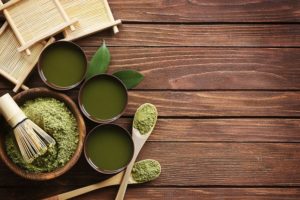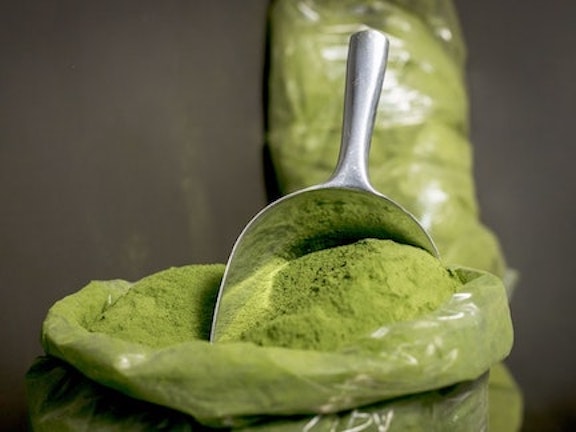What is Moringa Oleifera?
Moringa Oleifera comes from a tree that is native to India and has numerous health benefits. It’s super high in antioxidants, contains brain boosting nutrients, and sometimes goes by the names, drumstick tree, horseradish tree, or ben oil tree. It’s been around for thousands of years in Asian and Indian cultures. Americans are just now beginning to reap the benefits. This is due to the fact that some of the health claims have now been scientifically proven. Let’s explore moringa’s benefits and see what this magical leaf has to offer.
To The Point - What is Moringa Good For?
- Loaded with antioxidants
- Loaded with Vitamins & Minerals
- Reduces inflammation
- Lowers cholesterol
- Lowers blood sugar, glucose levels, and prevent blood sugar spikes
- Reduces liver inflammation
- Good for your hair and skin
- Increases bone density
- Reduces the severity of asthma
- Reduces high blood pressure
- Prevents cancer
- Improves libido or sex drive
- Provides anti-fungal, antibacterial, and antiviral properties
- Protects the brain
14 Moringa Benefits
- Loaded with antioxidants which helps fight free radicals in the body. Free radicals contribute to oxidative stress, which can contribute to anxiety, poor heart health, and disease.
- Loaded with vitamins & minerals – Contains protein, vitamin B6, vitamin C, iron, riboflavin B2, vitamin A, and magnesium. Most of these nutrients are essential for a healthy functioning brain.
- Reduces inflammation due to its isothiocyanate content, which can help prevent or fight diseases, such as cancer, arthritis, and autoimmune disease. It can also help with inflammation related depression and anxiety. Inflammation is actually a lifesaving response that the body uses to protect itself, but chronic inflammation can wreak havoc throughout the body.
- Lowers cholesterol levels which can help avoid heart disease.
- Lowers blood sugar, glucose levels, and prevents blood sugar spikes which can help those with diabetes. *Make sure to keep an eye on blood sugar because moringa can lower levels too much, which could cause hypoglycemia. It can also help with mood disorders. Blood sugar levels that are too high or too low can lead to mood swings, depression, and anxiety. Make sure to consult an alternative medicine professional to see how much you should take to ensure that you’re not doing more harm than good.
- Reduces liver inflammation which prevents infection and injury to the organ. It also regenerates the enzymes, thereby reducing liver damage.
- Good for your hair, skin and nails because it has properties known to prevent free radicals from damage related to aging. It can also help your skin by speeding up the production of collagen and blood purification. This rids the body of toxins that are responsible for aging.
- Increases bone density due to its high content of phosphorus and calcium. It can be especially beneficial to those suffering from arthritis.
- Reduces the severity of asthma by protecting against bronchial restriction and assisting in better breathing and lung function.
- Reduces high blood pressure which can help those with hypertension. It contains isothiocyanate and niaziminin, which help protect against artery thickening. *Make sure to keep an eye on blood pressure to make sure it doesn’t go too low.
- Prevents cancer because it contains niazimicin which is known to suppress cancer cells.
- Improves libido or sex drive. *However, it can also work as a birth control as well, because it lowers the chance of conception. Therefore, don’t take moringa if you are trying to get pregnant.
- Provides anti-fungal, antibacterial, and antiviral properties that can help keep bad pathogens in check by making you less susceptible to yeast infections, bacterial infections, colds, and flues.
- Protects the brain due to its rich tryptophan content which is an amino acid that converts to serotonin. Serotonin is a mood booster and low levels have been linked to many mental health issues.
To The Point - How Can I Take Moringa?
- Powder (Most Common) – add to smoothies, yogurt, oatmeal, or salad.
- Tea
- Seeds – Boil similar to peas or beans. Then add to salads or any other dish of your choice.

How To Take Moringa Powder
So, how can you take moringa? The leaf can be dried and purchased as a powder, tea, or seeds. The powder retains a lot of its nutrients in dried form, which is why it’s been used in India and Africa to help fight malnutrition. The powder is the most commonly used form.
How Can I Take Moringa?
Moringa has a bitter yet slightly sweet taste and can be added to smoothies, oatmeal, yogurt, or salads. The recommended serving size is usually around 1 tablespoon per day, but you can start with 1 teaspoon and work your way up. It can be purchased at your health food store or online for about $10 per pound.
Moringa Tea
You can also purchase moringa tea or moringa seeds, however, the powder is known to be the most potent. 30 grams of moringa tea can be purchased for around $10.
Is Moringa Safe?
Make sure to research whether it can interfere with any medications you might be taking. Although moringa benefits can be very helpful, it can also work against you if you already have high levels of iron, low blood pressure, or low blood sugar. The safest form of consumption is in powdered form, however, make sure not to exceed the recommended daily dosage. Consider consulting an alternative medicine guru to determine the perfect dosage for your desired results.
Learn more about Habitat for Wellness

